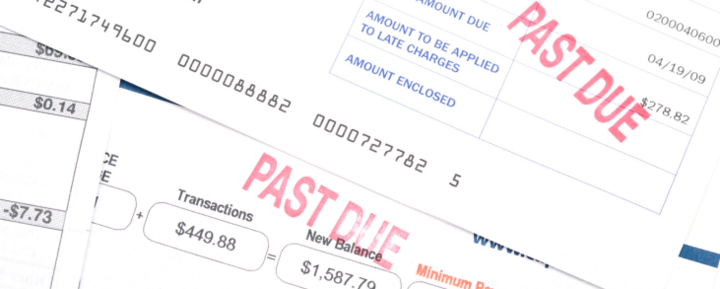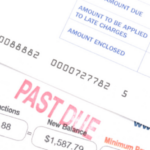Dealing with debt collectors can be stressful, especially if you feel they’re acting unfairly or violating your rights.
The Fair Debt Collection Practices Act (FDCPA) is designed to protect consumers from abusive, misleading, or aggressive tactics used by debt collectors. If you believe your rights under the FDCPA have been violated, you may be wondering whether you should hire an attorney who specializes in this area.
Read on to learn more about the role of an FDCPA attorney, when to consider hiring one, and how to choose the right attorney to help protect your consumer rights.
Role of an FDCPA Attorney
Who is an FDCPA Attorney?
An FDCPA attorney is a legal professional who specializes in cases involving violations of the Fair Debt Collection Practices Act. These attorneys are well-versed in consumer laws and focus on holding debt collectors accountable for illegal collection activities. They provide legal advice, representation, and advocacy in cases where debt collectors may have overstepped their legal boundaries.
Importance in Consumer Rights Protection
FDCPA lawyers play a crucial role in safeguarding consumer rights. Debt collection agencies may attempt to use intimidation, harassment, or false statements to pressure consumers into making payments. An attorney specializing in the FDCPA ensures you’re not subjected to these unlawful practices and helps you seek compensation if your rights have been violated.
By holding debt collectors accountable, FDCPA attorneys promote fairness and transparency in the debt collection process.
When to Hire an FDCPA Attorney
Common Signs You Need an FDCPA Attorney
Not all interactions with debt collectors require legal action, but there are certain red flags that indicate it may be time to seek legal assistance:
- Frequent or persistent phone calls, especially at odd hours.
- Threats of violence, arrest, or legal action without basis.
- Use of obscene or abusive language.
- Misrepresentation of the amount owed or the legal status of your debt.
- Communication with third parties (friends, family, employers) about your debt.
- Refusal to validate or provide information about the debt in question.
If you are experiencing any of these behaviors, consulting an FDCPA attorney to evaluate your case is a good idea.
Benefits of Hiring an FDCPA Attorney
Hiring an attorney specializing in FDCPA violations can provide several advantages:
- Protection from further harassment: Once you hire an attorney, all communications with the debt collector will typically go through them, giving you relief from direct interactions.
- Legal expertise: An FDCPA attorney understands the complexities of consumer protection laws and can help you understand your rights.
- Potential compensation: If your case is successful, you may be entitled to statutory damages, compensation for emotional distress, and payment of attorney’s fees.
- Prevention of further harm: Your attorney can help you avoid unfavorable settlements or payment agreements by advocating for your best interests.
Potential Outcomes
If your case is successful, potential outcomes may include:
- Compensation for damages caused by the debt collector’s unlawful practices.
- A judgment that requires the debt collector to stop violating your rights.
- Possible reimbursement of legal fees and costs.
- Relief from the debt collector’s harassment, along with peace of mind knowing your rights are protected.
How to Choose the Right FDCPA Attorney
Important Qualities to Look For
When selecting an FDCPA attorney, you want to ensure they have the right qualities to represent you effectively. Key attributes include:
- Experience in FDCPA cases: They should have a deep understanding of the law and how to handle debt collector violations.
- Strong communication skills: You want an attorney who can explain your rights, legal options, and case strategy clearly and professionally.
- Client-focused approach: An attorney who prioritizes your interests and is empathetic to your situation can provide valuable support throughout the process.
Questions to Ask in an Initial Consultation
Before hiring an FDCPA attorney, it’s important to ask the right questions to determine if they are a good fit. Here are some sample questions you can use during initial consultations:
- How much experience do you have with FDCPA cases?
- Have you handled cases similar to mine?
- What is your approach to resolving FDCPA violations?
- What are the potential costs or fees for your services?
- How long do you think my case will take?
Evaluating Experience and Track Record
Look for an attorney who has a history of successfully handling cases like yours and securing favorable outcomes for their clients. You can ask for testimonials or reviews from previous clients, or inquire about their success rate in FDCPA-related litigation.
Consumer Rights Under the FDCPA
Here are some of the key protections you should know when dealing with debt collectors.
Protections Against Abusive Practices
Under the FDCPA, consumers are protected from abusive, deceptive, and unfair practices by debt collectors. This includes harassment, false statements, and threats. These protections are in place to ensure that consumers are treated fairly and respectfully during the debt collection process.
Rights Regarding Debt Verification
One of the most important rights under the FDCPA is the right to request debt validation. If you dispute the debt or need additional information, the collector is required to provide written verification within 30 days. If they fail to do so, they must stop collection efforts until they provide the requested information.
Prohibited Actions by Debt Collectors
Debt collectors are prohibited from engaging in certain actions, including:
- Placing collection calls to you before 8 a.m. or after 9 p.m.
- Communicating with you at work if you’ve requested them not to.
- Contacting third parties about your debt, such as family members or your place of employment, except under specific circumstances.
- Using false, deceptive, or misleading representation in collecting a debt.
Common FDCPA Violations
Do you believe a debt collector has violated your rights? The FDCPA prohibits several common situations, which would warrant consulting an attorney.
Harassment and Abuse
The law prohibits debt collectors from using harassment or abusive tactics to collect debts. This includes repeated phone calls, threats, obscene language, and other forms of harassment. If you have experienced any of these actions, it may be grounds for legal action.
Misrepresentation and False Statements
The FDCPA prohibits debt collectors from making false or misleading statements about the amount owed, the legal status of the debt, or their ability to take legal action. If a collector misrepresents themselves or your debt, you may have a case for violation of the FDCPA.
Unlawful Threats and Intimidation
Debt collectors cannot threaten you with actions they cannot legally take, such as arrest or wage garnishment without proper court orders. Unlawful threats and intimidation are common violations of the FDCPA and may entitle you to compensation.
Working with a law firm specializing in FDCPA violations can be important in protecting your rights against illegal debt collection practices. If you believe a debt collector has violated the law, understanding your legal options and acting quickly can secure the compensation and relief you deserve. Hiring a qualified FDCPA attorney gives you an advocate who will protect your rights and defend you from further unfair debt collection practices. If you’re currently communicating with a debt collector, having a professional who knows the law and can help you devise a plan is important. The Tayne Law Group can help. Call our law offices at (866) 890-7337 or fill out our short contact form for a free consultation and learn about your options.








